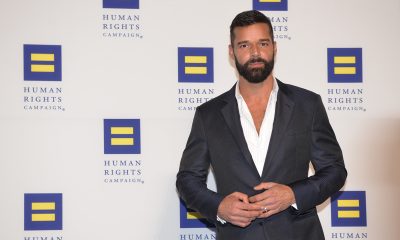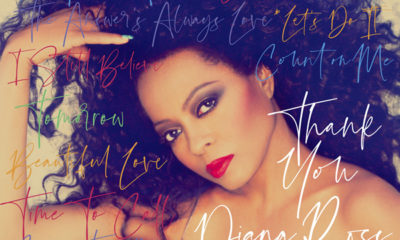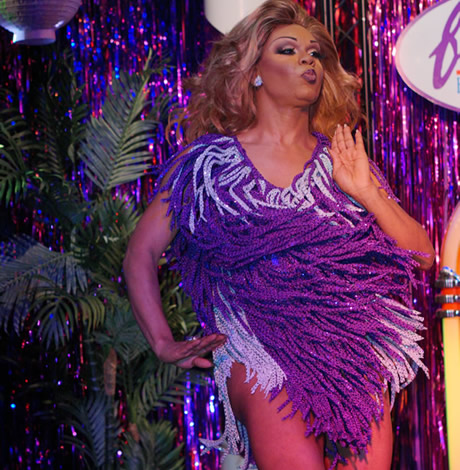Music & Concerts
New Supremes deluxe reissue features classic alternate takes, live ’67 show
Founding member Florence Ballard heard prominently on ‘Supremes Sing HDH’
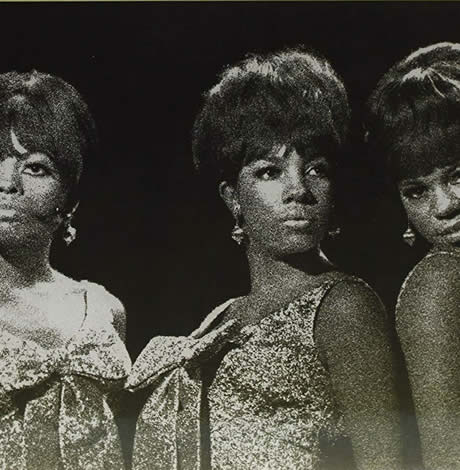
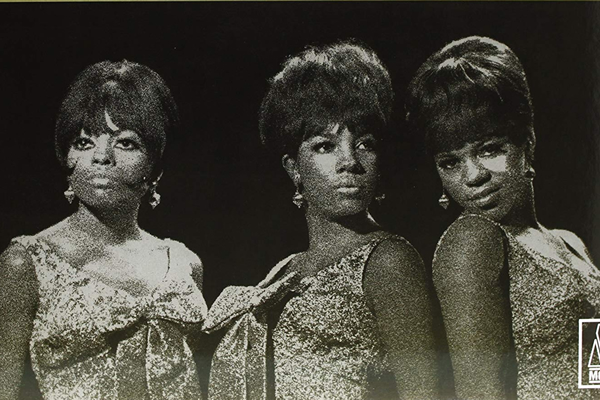
The Supremes (Photo courtesy Motown/Universal)
It’s been a particularly rich several years for Supremes fans as Universal (previously under the now-defunct Hip-O-Select imprint) continues its series of classic album “expanded editions” from Motown’s leading ladies.
The latest — perhaps the series’ best, although that’s a tough call — is the deluxe reissue of “The Supremes Sing Holland-Dozier-Holland: Expanded Edition,” a two-CD digipak that features the original album in both stereo and mono mixes, 12 alternate takes/extended mixes and a jaw-droppingly pristine recording of the group’s 1967 engagement at the famous Copacabana nightclub in New York where just a few years earlier, they’d recorded their legendary “At the Copa” album (itself reissued in deluxe format in 2012).
The album — named for Motown’s main songwriting team — features the Supremes’ no. 1 hits “You Keep Me Hangin’ On” and “Love is Here and Now You’re Gone” as well as a cover of Martha and the Vandellas’ hit “(Love is Like a) Heat Wave” (interesting, though the girls don’t capture the Vandellas’ fire; it illustrates beautifully how different the two groups were) and “Going Down for the Third Time,” one of the Supremes’ best deep album cuts (it was later the B-side to “Reflections” and sounds like it could have been a smash itself).
The 1967 Copa recordings are notable on several counts. One, they’re the final group appearances of founding member Florence Ballard who was officially ousted from the group soon thereafter and replaced by Cindy Birdsong. Two, while bootlegs have circulated of these shows among fans in recent years, they’ve either been very hard to come by and/or available only with distorted audio. Everything’s cleaned up just so on the new album and we get the pleasure of hearing Ballard and fellow Supreme Mary Wilson’s backing vocals surprisingly high in the mix (we hear them much more prominently than we do on the accompanying studio recordings although, even there, they’re prominent).
The Supremes in their last few years with Diana Ross (she left in 1970) were a mixed bag. There were still hits (although not nearly as many) in the post-Ballard era (“Love Child,” their joint albums with the Temptations), but it was never quite the same. Birdsong did an admirable job with big heels to fill (her singing was lovely) but she could never hope to match Ballard’s sassy persona and brassy vocals. There’s a reason characters inspired by Ballard — played by Jennifer Holliday and and Jennifer Hudson in the stage and screen versions of “Dreamgirls” — are the ones everybody remembers.
The second disc here, with the Copa material, gives us the chance to hear Ballard on classic Supremes live material, especially a mash-up of “Thoroughly Modern Millie,” “Second Hand Rose” and “Mame” we’d previously only known from the group’s 1968 “Live at London’s Talk of the Town” album with Birdsong (itself, admittedly, a gem).
Culled from the best takes from two shows, we also get an alternate version of “Put On a Happy Face” (a different take than the one on the Supremes 2000 box set),” an uber-rare live version of “My Favorite Things” (recorded on the Supremes’ Christmas album) and a blistering live version of their 1967 No. 1 hit “The Happening.”
Thanks to these wonderful reissues, we now have a much better picture of the Supremes’ true stage act throughout the ‘60s. For decades, all we had were the original “At the Copa” and “Talk of the Town” albums (both heavily edited), but it’s now possible to truly feel what the Supremes classic lineup was like live between the “Copa” reissue album, this 1967 Copa show on the new release and the bonus disc of the 2012 equally grand re-release of the “I Hear a Symphony” album which features a previously unreleased (and complete!) live performance of the Supremes at the Roostertail in Detroit.
It’s all dated in the most deliciously endearing way, a breath of fresh air in our exceedingly jaded and ironic era. The cheesy, Vegas-y string section, the reprises that are nothing more than a retread of the last several bars of music, the canned stage patter — it just all works the same way you never get tired of “Carol Burnett Show” reruns or other classic relics of the era. It’s just a bit raw too — Ross’s lead vocals sound a tad weathered by constant touring. There’s a gritty topcoat on the otherwise wonderfully syrupy vocals we hear her offer on the studio material here.
Even though these final moments with Ballard are bittersweet to hear, I’m still champing at the bit for Universal to continue this series into the Birdsong years. It will be amazing — one can only hope — to hear the full “Talk of the Town” live recordings as well as a proper reissue of the group’s “Farewell” 1970 album. Although most notable as the group’s final shows with Ross, it’s of greater historical note to me because it’s all we really know of the Supremes’ 1969 live act.
Wilson told the Blade in a 2017 interview the “Farewell” material was pretty much the group’s 1969 live show, i.e. it was not greatly altered for the Frontier engagement (which became the “Farewell” album), still I yearn to hear what the group sounded like on a “normal” night that final year together. They toured relentlessly that year — let’s hope series producers Andrew Skurow and George Solomon are eventually able to unearth some heretofore unknown 1969 live material or at least some alternate Frontier-recorded Supremes performances.
Also, do yourself a big favor and don’t get this release on a digital or streaming medium. The foldout digipak is gorgeous and comes with two booklets, both chocked with vintage photos. One features an amazing interview with Motown songwriter Lamont Dozier (of the title); the other is a reproduction of the Supremes’ 1967 tour program.
Music & Concerts
Washington chorale kicks off Christmas with vibrant program
‘Thine Own Sweet Light’ concerts planned

The full Washington Master Chorale will return for its annual holiday concert tradition with “Thine Own Sweet Light” on Friday, Dec. 19 and Sunday, Dec. 21 at St. Ann’s Catholic Church (D.C.) and Church of the Epiphany (D.C.).
The concert will feature the rich sounds of the 50-voice, a cappella chorus performing lush, seasonal choral music inspired by the theme of light. Highlights include Edvard Grieg’s “Ave Maris Stella,” Eric Whitacre’s “Lux Aurumque,” and Christopher Hoh’s “Holy, Holy, Holy is the Lord God of Hosts.” The program will also present a new work by Barcelona composer Josep Ollé i Sabaté, along with charming holiday folk songs and seasonal favorites.
For more details, visit the Washington Master Chorale website.
Music & Concerts
Queer mega stars (and allies) ready to take D.C. stages this fall
Watch LGBTQ icons light up stages across the DMV as they sing, dance, and drag their way through spectacular shows.
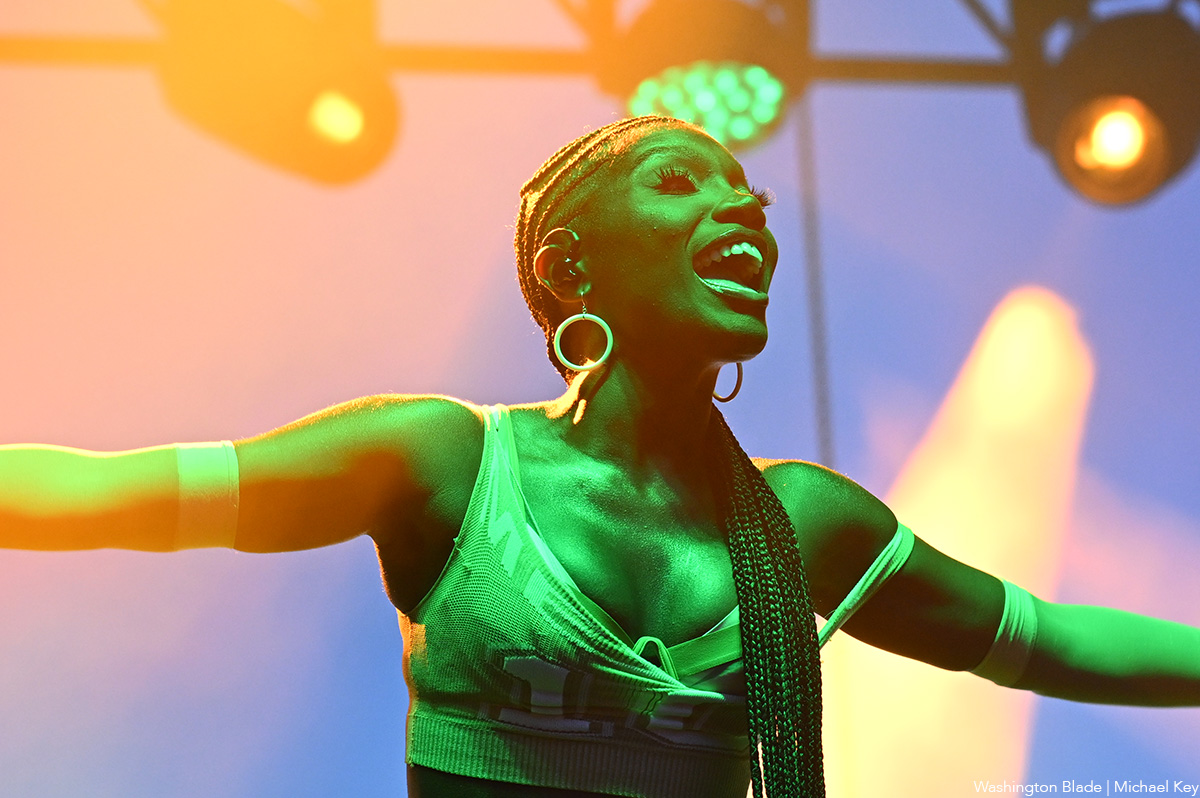
One of the best ways to welcome fall is by catching LGBTQ performers (and their allies) lighting up some of the D.C. area’s biggest stages. From country and pop to drag and rock, the season is packed with shows you won’t want to miss.
Maren Morris – The country, rock, and pop diva—known for hits like “The Bones” and for standing up against Nashville’s anti-LGBTQ voices—takes the stage at Wolf Trap (1551 Trap Rd, Vienna, Va.) on Friday, Sept. 12 at 8 p.m. Tickets start at $64.
RuPaul – The mother of modern drag and host of “RuPaul’s Drag Race” will spin a DJ set at Echostage (2135 Queens Chapel Rd NE) in Northeast D.C. on Sept. 20. Before RuPaul swaps wigs for headphones, Trade and Number 9 owner Ed Bailey will warm up the decks. For tickets and details visit echostage.com.
Conan Gray – The queer pop prince, celebrated for his Gen Z anthems like “Heather” and “Maniac,” brings his Wishbone Pajama Show to EagleBank Arena in Fairfax, VA, (4500 Patriot Cir) on Sept. 20 at 8 p.m. Tickets start at $113. For more info visit shop.conangray.com/pages/tour.
All Things Go Music Festival – With a lineup that includes Noah Kahan, Lucy Dacus, Kesha, Clairo, Doechii, and more, the beloved LGBTQ-friendly festival takes over Merriweather Post Pavilion (10475 Little Patuxent Pkwy, Columbia, Md.) Sept. 26–28. For tickets and details visit allthingsgofestival.com.
BERTHA: Grateful Drag – This unique tribute brings drag artistry and the sounds of the Grateful Dead to The Atlantis (2047 9th St NW) on Sept. 27. Tickets start at $47 at theatlantis.com.
Peach PRC – Rising Australian pop star and out lesbian, whose confessional tracks like “Perfect for You” and “Forever Drunk” have made her a queer TikTok darling, performs at The Atlantis on Sept. 29 at 6:30 p.m. The show is general admission only. Additional details are on theatlantis.com.
Addison Rae – The TikTok star-turned-pop princess, who’s crossed over into music with glossy hits like “Diet Pepsi” brings her sold out show to The Anthem (901 Wharf St., S.W.) on Sept. 30. Tickets are sold out, but resale options start around $80. For more info visit theanthemdc.com.
The Rocky Horror Picture Show 50th Anniversary – Celebrate the cult classic that’s been a queer midnight-movie staple for decades, with Barry Bostwick (a.k.a. Brad Majors) at the Warner Theatre (513 13th St., N.W.) on Oct. 2 at 8 p.m. Tickets start at $41 via Ticketmaster.
Chaka Khan, Patti LaBelle, Gladys Knight & Stephanie Mills – Four legends, one stage. Between Khan’s funk, LaBelle’s soul, Knight’s R&B, and Mills’ powerhouse vocals, this concert at Capital One Arena (601 F St NW) on Oct. 3 at 8 p.m. promises pure diva magic. Tickets start at $103. For more details visit capitalonearena.com.
Lorde – Joined by The Japanese House and Chanel Beads, the Grammy-winning New Zealand singer-songwriter behind “Royals” and “Solar Power” returns to The Anthem on Oct. 4 at 7 p.m. Lorde has long been embraced by queer fans for her dreamy pop and subversive lyrics. For more info visit theanthemdc.com.
Andy Bell (of Erasure) – The British queer rock icon, best known for synth-pop classics like “A Little Respect” and “Chains of Love,” brings his Ten Crowns Tour to the Lincoln Theatre (1215 U St., N.W.) on Friday, Oct. 17 at 8 p.m. Tickets are $90.45.
Doechii – The self-described queer “Swamp Princess”—and WorldPride 2025 headliner—continues her breakout year with the Live from the Swamp Tour at The Anthem on Oct. 21 at 8 p.m. Known for blending rap, R&B, and avant-garde performance art, Doechii is one to watch. Tickets start at $153.
Neon Trees – The out-and-proud Utah rockers behind “Everybody Talks” and “Animal” perform at the Lincoln Theatre on Friday, Oct. 24 at 8 p.m. Lead singer Tyler Glenn, who came out publicly in 2014, has become a strong queer voice in alternative rock. For tickets and info visit impconcerts.com.
Sasha Colby – The “RuPaul’s Drag Race” Season 15 winner strips down on the Stripped II Tour at the Warner Theatre on Nov. 2 at 8 p.m. Tickets available now on Ticketmaster.
Lola Young – The bisexual indie-pop sensation, whose raw songwriting has earned her millions of TikTok fans and multiple chart soaring hits visits The Anthem on Nov. 9 at 8 p.m. Tickets are still available.
Opera Lafayette
Featuring Mary Elizabeth Williams as Dido
+ Elijah McCormack, Chelsea Helm
Oct. 16, 7:30 p.m.
Sixth & I
PostClassical Ensemble
The Pale Blue Do: A Musical Voyage Inspired By Nature
Featuring National Geographic’s Enric Sala, Guest Curator
Wednesday, November 19, 7:30 p.m.
Terrace Theater
Washington Concert Opera
Starring Kate Lindsey, Theo Hoffman, John Moore, and Fran Daniel Laucerica
Nov. 23, 6 p.m.
Lisner Auditorium
Washington Master Chorale
An intimate a capella concert taking place in an architectural jewel, featuring cherished choral gems from Anglican and Catholic tradition and early American hymns. The concert will also present the world premiere of Christopher Hoh’s Holy, Holy, Holy is the Lord God of Hosts, and hymn singing featuring Robert Church, organist and choirmaster at St David’s.
Oct. 18, 7:30 p.m.
October 19, 5 p.m.
St. David’s Episcopal Church
Music & Concerts
Cyndi Lauper ready to have fun in Virginia
Superstar to bring final leg of farewell tour to Jiffy Lube Live
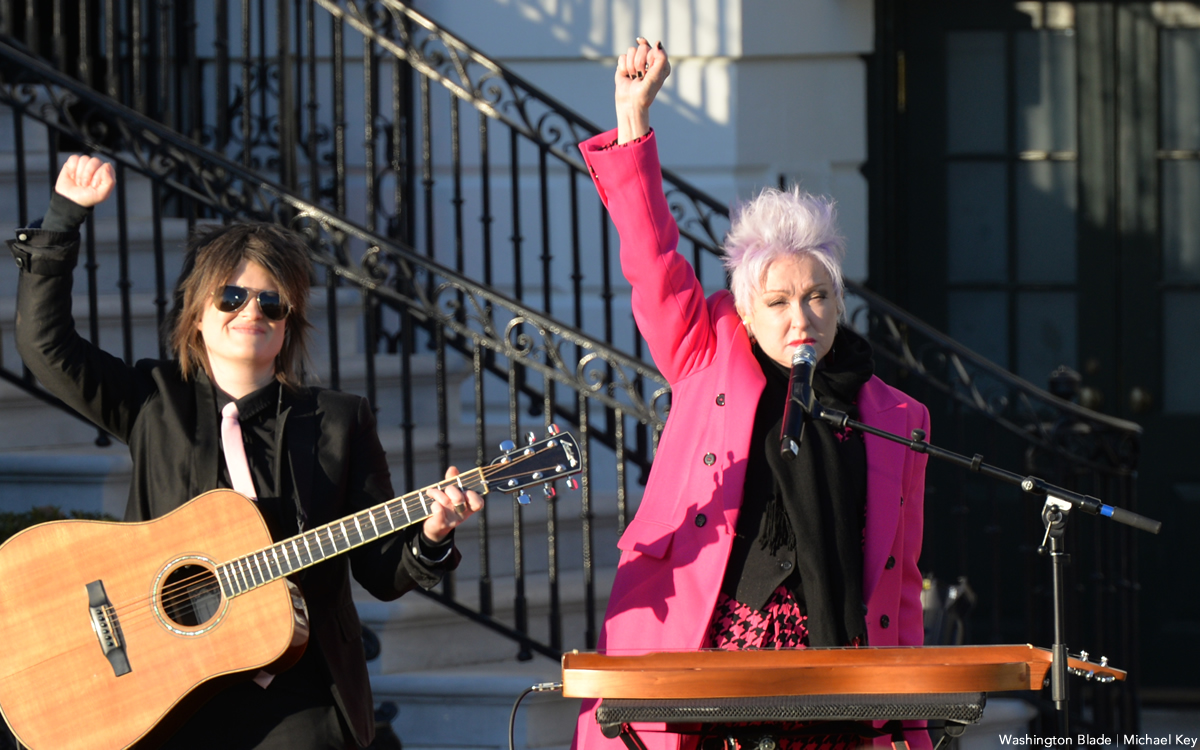
Superstar Cyndi Lauper will bring the final leg of her farewell tour “Girls Just Wanna Have Fun” to Bristow, Va., on Thursday, July 24 at Jiffy Lube Live.
Lauper’s international Farewell Tour – her first major headlining run in a decade – kicked off in North America last October, and included her first time ever headlining (and selling out) Madison Square Garden. Lauper’s performances have earned raves from the New York Times, Rolling Stone, Billboard, and many more, and surprise guests have included Chaka Khan, Sam Smith, and Hayley Williams. The tour just visited the U.K. and Europe, and will head to Australia and Japan in April.
Tickets are available on Live Nation’s website.
-

 Theater5 days ago
Theater5 days agoMagic is happening for Round House’s out stage manager
-

 Baltimore3 days ago
Baltimore3 days ago‘Heated Rivalry’ fandom exposes LGBTQ divide in Baltimore
-

 Real Estate3 days ago
Real Estate3 days agoHome is where the heart is
-

 District of Columbia3 days ago
District of Columbia3 days agoDeon Jones speaks about D.C. Department of Corrections bias lawsuit settlement

